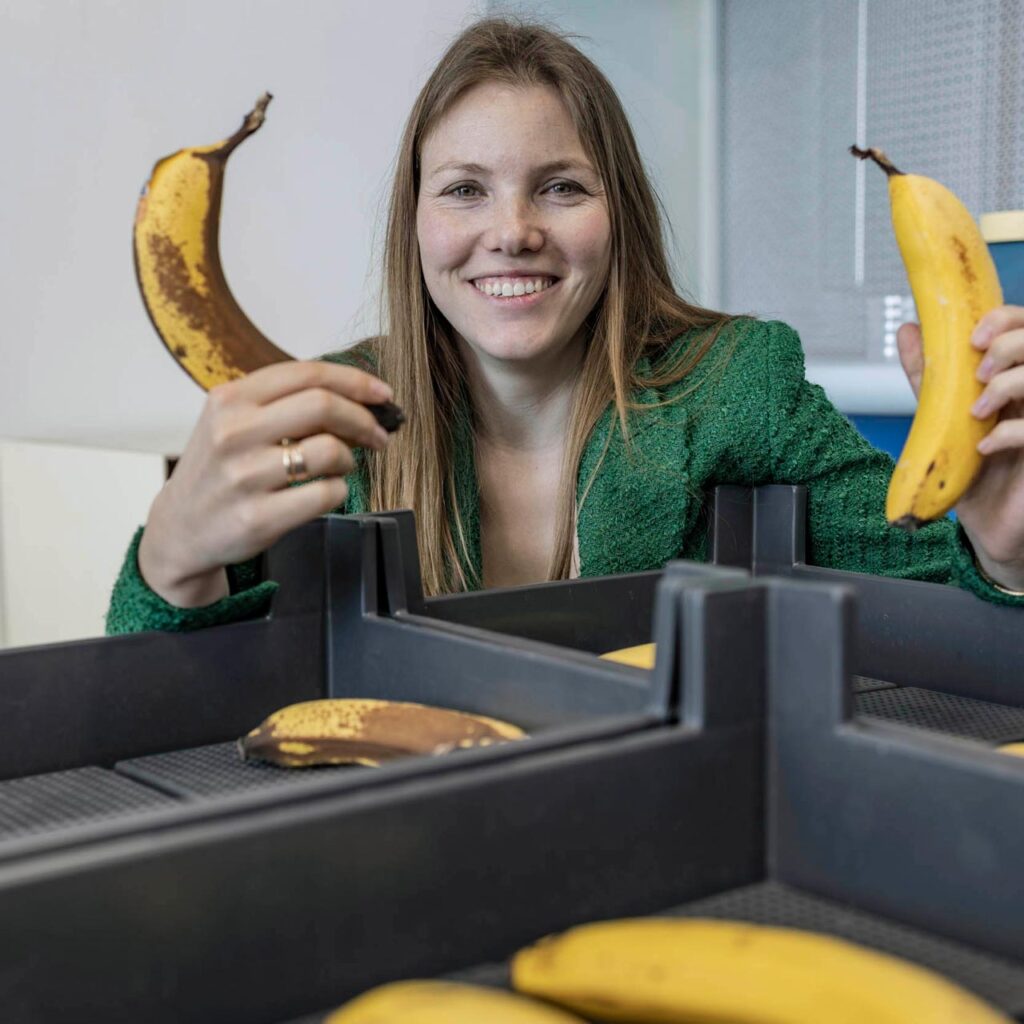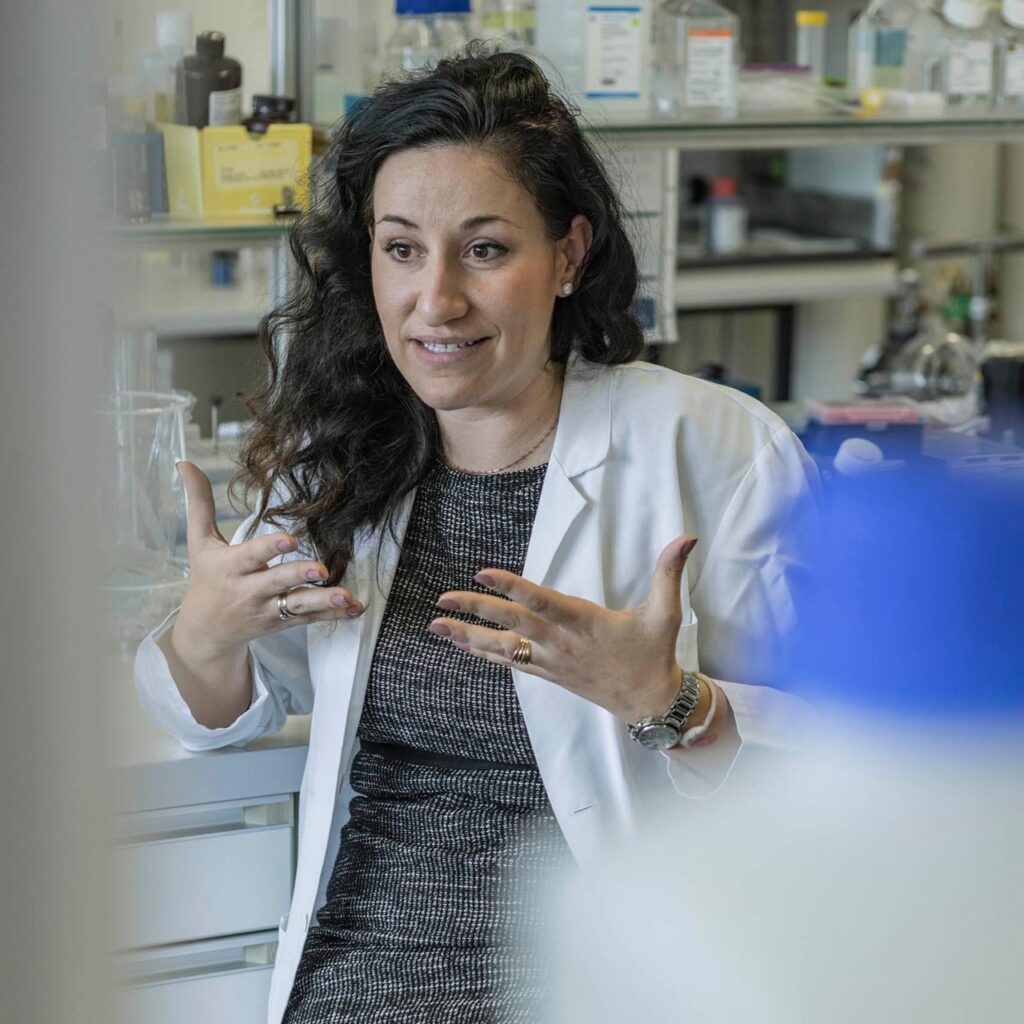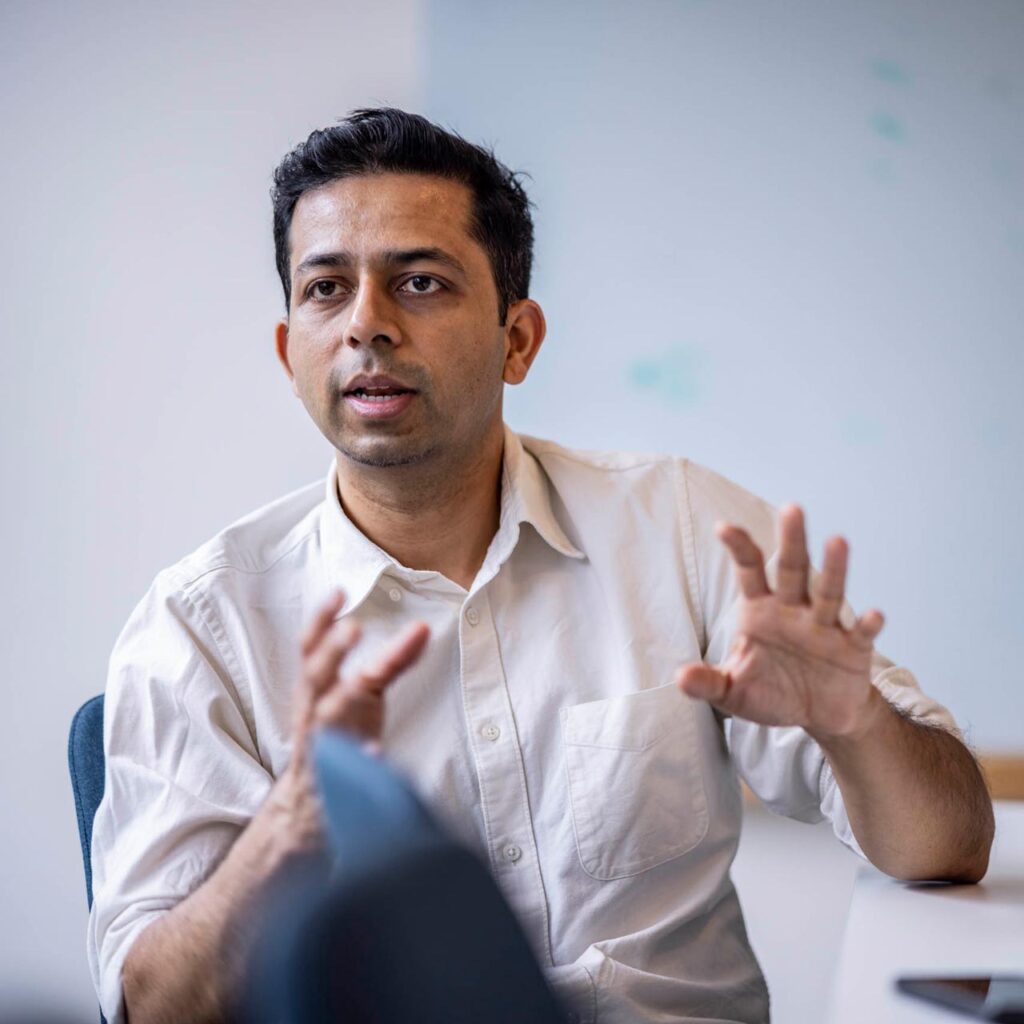Finalists 2023
Everything but the ordinary: the finalists 2023
AgroSustain (Renens VD)
Natural plant protection
Since May 2018, company founders Olga and Sylvain Dubey and more than ten other specialists at AgroSustain have been developing coatings to extend the freshness and shelf life of fruits, vegetables and flowers after harvest. The result is a highly effective, natural coating that can be sprayed onto the crops to form an invisible, odorless and tasteless protective layer. Thanks to this coating, products have a longer shelf life of up to one month, thereby significantly reducing food waste. Some products no longer require plastic packaging at all. The agent, which is already available, protects plant products and regulates their water contents. The next generation of agents will additionally also be anti-fungicidal and this will continue to be on an all-natural basis. The start-up is a spin-off of the University of Lausanne and is now located near the university.
Since May 2018, company founders Olga and Sylvain Dubey and more than ten other specialists at AgroSustain have been developing coatings to extend the freshness and shelf life of fruits, vegetables and flowers after harvest. The result is a highly effective, natural coating that can be sprayed onto the crops to form an invisible, odorless and tasteless protective layer. Thanks to this coating, products have a longer shelf life of up to one month, thereby significantly reducing food waste. Some products no longer require plastic packaging at all. The agent, which is already available, protects plant products and regulates their water contents. The next generation of agents will additionally also be anti-fungicidal and this will continue to be on an all-natural basis. The start-up is a spin-off of the University of Lausanne and is now located near the university.
MUVON Therapeutics (Zurich)
Personalized muscle recovery
How can the body’s own cells be used to regenerate skeletal muscle tissue and increase the regeneration potential of weakened muscles? In 2020, Deana Mohr, Jenny Prange, Steve Kappenthuler and Daniel Eberli founded MUVON Therapeutics, a UZH Spin-off currently supported in Wyss Zurich, a joint accelerator of ETH Zurich and the University of Zurich. The researchers are using personalized medicine and minimally invasive, low-risk methods to treat diseases related to skeletal muscle damage or degradation. The initial focus is on treating stress urinary incontinence in women, using tissue bioengineering. Nine patients have already successfully been treated in Phase 1. Muscle precursor cells are taken and isolated from the patient’s own body tissue, then expanded in a controlled manner and subsequently injected with highest precision into the affected muscle tissue. The subsequent regeneration of the bladder sphincter is expected to eliminate one of the main causes of incontinence, leading to a strong improvement in the quality of life of those affected.
How can the body’s own cells be used to regenerate skeletal muscle tissue and increase the regeneration potential of weakened muscles? In 2020, Deana Mohr, Jenny Prange, Steve Kappenthuler and Daniel Eberli founded MUVON Therapeutics, a start-up based at the Wyss Zurich Translational Center, a joint venture of ETH Zurich and the University of Zurich. The researchers are using personalized medicine and minimally invasive, low-risk methods to treat diseases related to skeletal muscle damage or degradation. The initial focus is on treating stress urinary incontinence in women, using tissue bioengineering. Nine patients have already successfully been treated in Phase 1. Muscle precursor cells are taken and isolated from the patient’s own body tissue, then expanded in a controlled manner and subsequently injected with highest precision into the affected muscle tissue. The subsequent regeneration of the bladder sphincter is expected to eliminate one of the main causes of incontinence, leading to a strong improvement in the quality of life of those affected.
Synthara (Zug)
In-memory computing capacities
Processors and memory need to be much more tightly integrated to achieve the system efficiencies required for tomorrow’s faster and smarter devices and applications. Synthara, founded by Alessandro Aimar and Manu V Nair, makes this possible by integrating processor capacity into the memory itself. This results in a processor architecture that is 50 times more powerful than conventional ones. The resulting chips are not only faster but can also be 15 to 20 percent smaller than previous chips, enabling new product features that were previously unattainable. Most importantly, the new processors are also backward compatible with existing applications and software stacks. The first generation of Synthara products target edge computing applications such as wearables, smart sensors and similar signal processing applications. The first samples will be shipped to a select group of early adopter customers later this year.
Processors and memory need to be much more tightly integrated to achieve the system efficiencies required for tomorrow’s faster and smarter devices and applications. Synthara, founded by Alessandro Aimar and Manu V Nair, makes this possible by integrating processor capacity into the memory itself. This results in a processor architecture that is 50 times more powerful than conventional ones. The resulting chips are not only faster but can also be 15 to 20 percent smaller than previous chips, enabling new product features that were previously unattainable. Most importantly, the new processors are also backward compatible with existing applications and software stacks. The first generation of Synthara products target edge computing applications such as wearables, smart sensors and similar signal processing applications. The first samples will be shipped to a select group of early adopter customers later this year.


